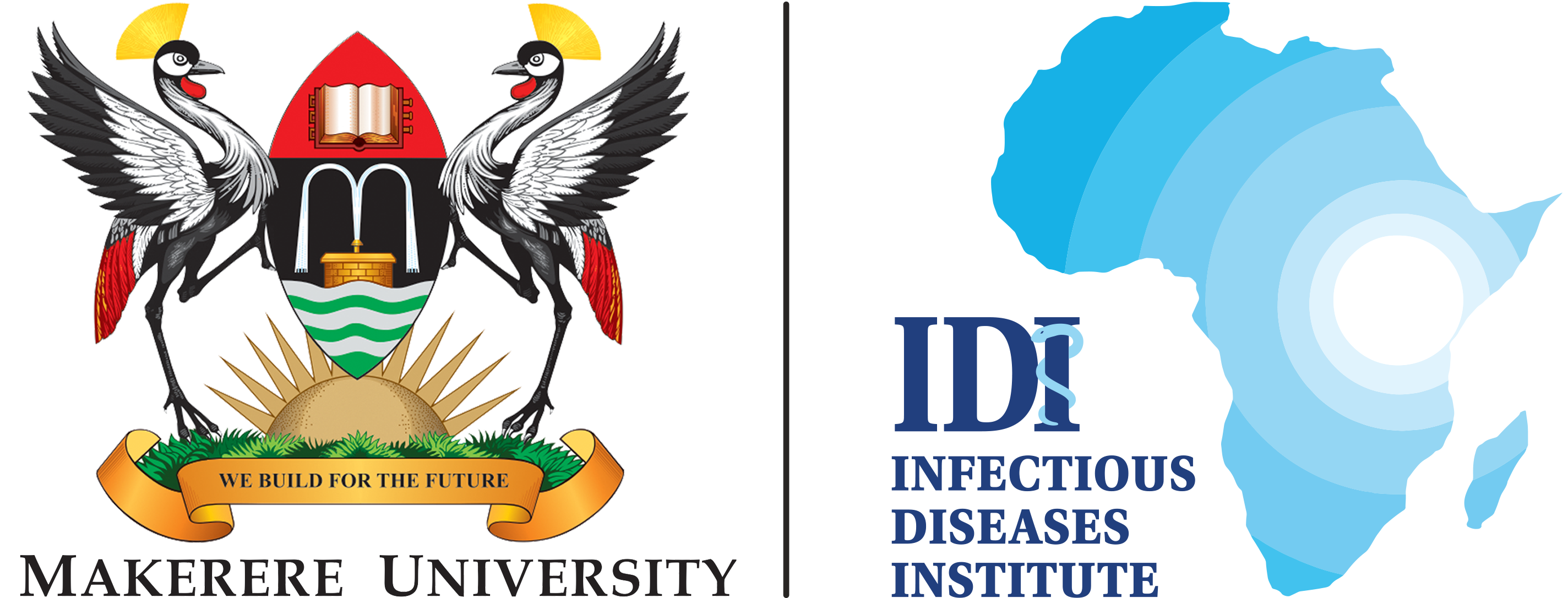- Associated Links
-
-
Our united network of partners and institutions share a vision for excellence, innovation, and impact. Together, we harness our combined strengths to create meaningful change.
-
-
- Careers
-
-
Our people are our greatest asset. We foster a thriving environment where everyone can flourish and make a difference. Join us in driving innovation and positive change through fulfilling career opportunities.
-
-
- Contact Us
-
-
As a leading national health organisation with regional influence, we are committed to improving healthcare in Africa. Connect with us to explore partnerships, discover our work, and together create a healthier future.
-
-
SCALE
The “Scale” pillar involves evidence-based innovations that the Academy has developed or adapted from external sources through partnerships and collaborations. Its primary focus is on scaling up health innovations to enhance healthcare outcomes and tackle the challenges and facilitators associated with scaling such initiatives. We embed proven approaches into health programmes, shape policy guidance, invest in systems change, and train stakeholders so they integrate these practices into their work. With funding from Pfizer, USAID, and PEPFAR, the Academy forged partnerships with IDI’s Health Systems Strengthening programme and the Uganda Protestant Medical Bureau. This collaboration has resulted in a diverse project portfolio of innovations aimed at improving health outcomes.
USAID’s Programme for Accelerated Control of Tuberculosis
Communities Leading the way in Ending TB
Nestled in the north-eastern part of Uganda lies Karamoja, a region cloaked in semi-aridity and entrenched in poverty. Here, access to primary healthcare facilities is a distant reality for the majority, with a mere 17% of residents having such services within a 5-kilometre radius.
In 2019, the staggering revelation from Uganda’s Ministry of Health painted a dire picture: Karamoja, home to an estimated 1.2 million people, bore the highest burden of Tuberculosis (TB), clocking in at an alarming rate of 500 cases per 100,000 individuals, dwarfing the national average of 154 cases per 100,000. More disheartening was the statistic that only half of the TB patients completed their treatment, with a paltry three out of ten achieving a cure.
Life in Karamoja revolves around communal living within confined homesteads known as manyattas. Ten or more family members often share cramped, poorly ventilated shelters, creating an environment ripe for the transmission of TB.
Recognizing the formidable challenges in delivering TB services, the Infectious Diseases Institute, funded by USAID, implemented the Programme for Accelerated Control of TB in Karamoja (PACT-Karamoja) to tackle this airborne menace through a tailored community-based strategy. Since 2020, community members have been trained to identify potential TB cases, collect samples for testing, and support diagnosed individuals in adhering to treatment regimens and medical appointments.
Simon Peter Lobong, a dedicated community healthcare worker, shares, “Many misconceptions about TB prevailed here, equating it with AIDS. Our role extends beyond identification; we dispel these myths, building trust through active listening and maintaining utmost confidentiality.”
Remarkable progress has been made since the inception of PACT-Karamoja. Notably, the latest data showcases an 80% cure rate for TB patients, a substantial surge from the initial 52% success rate at the program’s outset. This improvement owes much to the community-driven approach bolstered by IDI’s innovative Call for Life smart solution.
In a region burdened by high TB prevalence and historically low treatment success rates, these strides mark a significant milestone. Mortality rates for Call for Life patients stand at 2.4%, notably lower than the 3.4% observed for long-term-follow-up (LTFU) patients.
Tuberculosis remains the world’s deadliest infectious disease, claiming 1.5 million lives annually among the 10 million infected globally. Despite its severity, TB is both treatable and curable, evidenced by the preservation of over 63 million lives globally through targeted interventions over the past two decades.
The USAID’s PACT-Karamoja program, a $7.5 million commitment spanning from 2020 to 2025, endeavors to combat Karamoja’s high TB prevalence and low treatment success rates. By nurturing locally-driven solutions, the initiative mobilizes health facilities, village health teams, and community members, fostering accelerated screening, testing, identification, and successful treatment and prevention of TB.
USAID’s PACT-Karamoja programme is a $7.5 million agreement (2020-2025) that aims to address the Karamoja Region’s high TB prevalence and low treatment success rates by supporting locally generated solutions to mobilize health facilities, village health teams, and community members for accelerated screening, testing, identification, and successful treatment and prevention of TB.
In Karamoja, hope flickers brighter as communities unite to eradicate TB, setting a resounding example for the world in combating this formidable global health challenge.
ARTAccess
Driving person-centred care for people living with HIV in Low-Resource Communities
In the heart of low-resource communities across Africa, obstacles to accessing quality healthcare pose profound challenges. Long queues snake outside public facilities, healthcare centres remain distant, social stigma lingers, and financial constraints hinder transportation, impeding individuals’ pursuit of adequate health services. For those requiring lifelong HIV treatment, the burden is magnified as frequent visits to collect vital medication become a monthly necessity.
At public hospitals, patients encounter overcrowded spaces where stretched-thin staff struggle to allocate sufficient time to each person. The amalgamation of lengthy waiting times, social stigmatization, transport limitations, and work commitments becomes a barrier, preventing timely HIV medication pickups. This predicament often leads to treatment interruptions, escalating illness and the heightened risk of transmitting HIV to partners.
Addressing these formidable barriers and aiming to enhance flexibility and convenience for individuals living with HIV, the Infectious Diseases Institute pioneered a trailblazing solution: the ARTAccess mHealth tool. Painstakingly crafted through iterative processes involving qualitative interviews to ensure effectiveness and relevance, ARTAccess seamlessly integrates patient data, antiretroviral therapy (ART) information, and viral load data using an intelligent algorithm.
This integration is the catalyst for a community pharmacy refill programme, forging partnerships with local pharmacies to provide additional locations for medication refills and pickups. By expanding the points of access for HIV medication, the burden on both patients and the healthcare system is alleviated, reducing the need for frequent health facility visits and enabling clients to access medication closer to their homes.
Moreover, the tool identifies if a patient is connected to a community health worker for monthly follow-up support. For those not yet linked, options for connection are offered, recognising the key role community health workers play in supporting adherence to medication regimens.
Dr. Immaculate Ddumba, program management specialist for community health systems at USAID/Uganda, underscores the impact of community health worker support: “When patients are attached to a community health worker, they are more likely to adhere to their medication.”
Recognizing the indispensable role of individual preferences in HIV treatment, the Infectious Diseases Institute underscores the significance of tailoring services to meet diverse needs. Supported by the CDC, in collaboration with the Ministry of Health and other key partners, ARTAccess tool has evolved into a nationwide programme, extending its scope to encompass non-communicable diseases linked with HIV.
In the relentless pursuit of sustained HIV epidemic control, the innovative tool stands as a beacon, transforming the landscape of healthcare accessibility and adherence for those navigating the complexities of HIV treatment in resource-constrained settings.
How it works (Ref to the CLF drawing)
A Layer of Protection Against COVID-19
Battling COVID-19 Threat Using Home-Based Care App
In the wake of Uganda grappling with over 100,000 confirmed COVID-19 cases and 1,000 tragic losses by the end of 2021, a premier initiative emerged as an inspiration in the fight against the pandemic.
Collaborating closely with the Ministry of Health, the Infections Diseases Institute (IDI), through its Academy for Health Innovation, unveiled a revolutionary Home-Based Care application integrated into the Call for Life system. This innovative fusion aimed to provide real-time reporting and management of COVID-19 cases while safeguarding Community Health Workers (CHWs) from exposure risks.
The integration proved essential in alleviating the mounting pressure on Uganda’s healthcare system due to escalating community infections. As part of the comprehensive strategy to combat the virus, the Ministry of Health introduced COVID-19 home-based care, with 367 healthcare workers receiving rigorous training across Mbale, Arua, and Kampala districts to adeptly utilize this cutting-edge application.
The impact transcended beyond COVID-19, extending its reach to bolster disease prevention, risk communication, and health education initiatives. Through this seamless integration with the Call for Life system, CHWs were empowered to efficiently manage COVID-19 cases in communities, ensuring swift and effective responses to this unprecedented global health crisis. This invaluable tool not only revolutionized pandemic management but stands as a testament to the IDI’s resilience and innovation in safeguarding public health.
The Home-Based Care app is available on the Google Play Store. Download Now.
USAID Local Service Delivery For HIV/AIDS
Empowering community players to reach HIV epidemic control
At the forefront of the battle against HIV/AIDS, the Infectious Diseases Institute is diligently spearheading the transition of HIV service delivery to local partners. This critical effort is geared towards empowering and capacitating community-based partners to provide enduring care and support to individuals living with and affected by HIV.
Central to this initiative is the meticulous design and continual upkeep of HIV/AIDS service delivery programmes and platforms in collaboration with local partners. These endeavours aim to establish and maintain differentiated service delivery models, effectively reducing barriers while enhancing flexibility and convenience for those living with HIV.
Through its Academy for Health Innovation, the institute is committed to broadening access to impartial, top-tier, and personalized services tailored to individuals. This strategic approach integrates these services into primary healthcare systems. By doing so, the objective is to strengthen local organisations in delivering sustainable and impactful HIV/AIDS services.
In alignment with these aspirations, the USAID Local Service Delivery for HIV/AIDS project was set in motion. Operating within five sub-regions of Uganda—East Central, Eastern, Acholi, Lango, and Southwestern—the project aims to implement critical HIV/TB interventions through private not-for-profit entities currently supported by USAID-RHITES. The overarching goal remains steadfast: to bolster the Government of Uganda and PEPFAR’s joint endeavours in attaining and preserving HIV epidemic control, ultimately striving to bring an end to AIDS by 2030.
The Academy’s crucial role in this significant project revolves around empowering regional staff and private not-for-profit health facilities/sites to harness the potential of the Call for Life HIV and TB tool for offering automated treatment support. Currently, the implementation of Call for Life has been successful in 29 health facilities, accompanied by comprehensive training for 201 healthcare workers across the eastern, western, and north-eastern regions of Uganda.
By championing innovative approaches and fostering collaborative partnerships, the Infectious Diseases Institute continues to pave the way towards achieving sustainable healthcare solutions and ultimately overcoming the HIV/AIDS epidemic.

